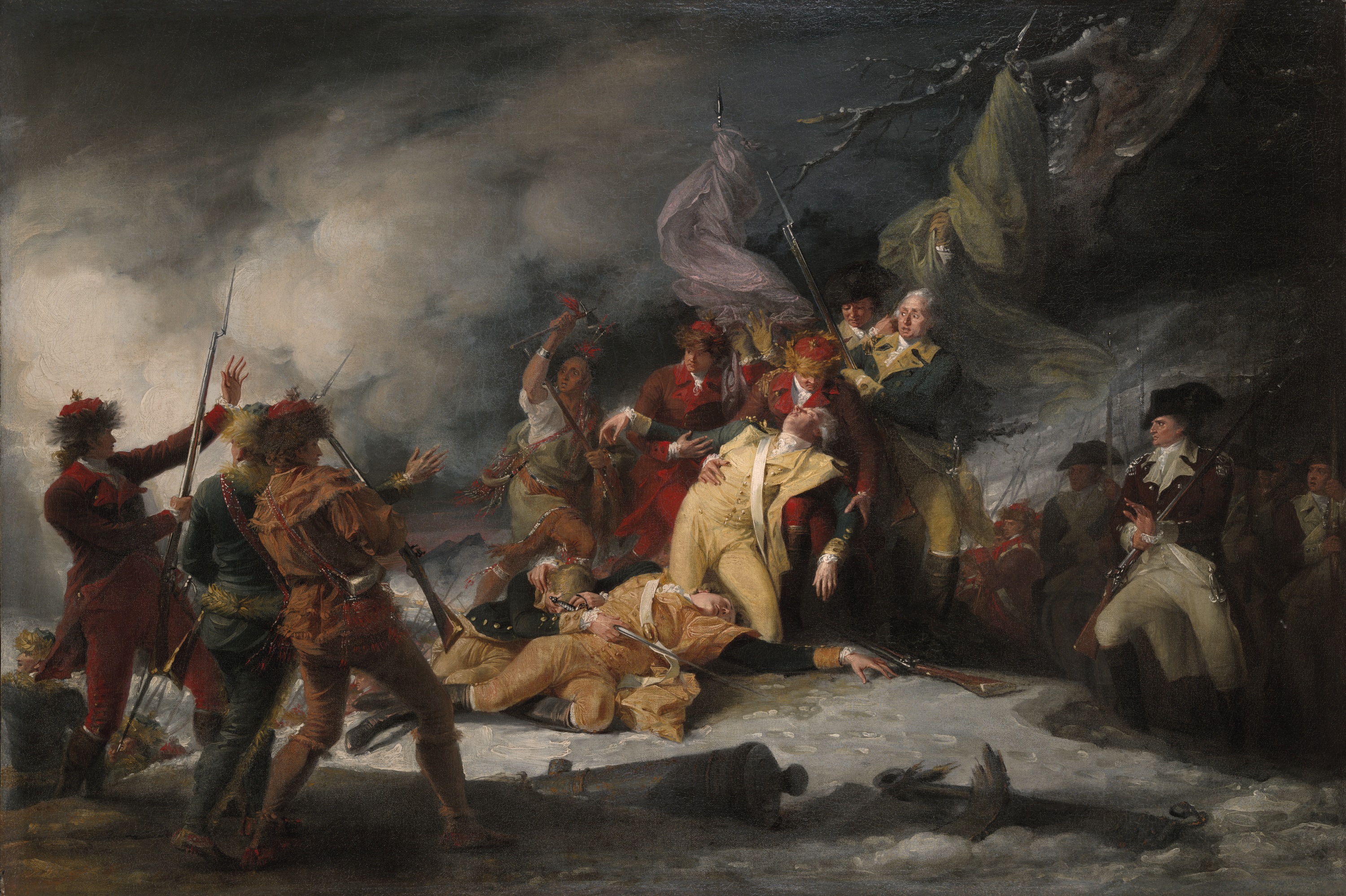The American Revolution, the revolt by American Patriots in the British colonies on the Eastern Seaboard which began in April 1775, naturally boiled over from the Thirteen Colonies to British colonies in Canada. The rebels formed what was called the Continental Army and launched a campaign to entice Canadians, particularly Québécois, to join them.
They found some support in Montreal, where American sympathizers also resented British taxes, and were unhappy with the Quebec Act of 1774 which guaranteed religious freedom and restored French civil law, to the chagrin of the Protestants.
The day the act came into effect, a bust of the king was vandalized to read “the pope of Canada” and “the English fool.”
Expecting to build on that support, Continental Army General Richard Montgomery moved north in September with 1,700 troops, headed for Montreal, capturing forts along the way in New York and Lower Canada.
With no success in raising a militia for defence against the 1,700 troops headed toward the city, Quebec Governor Sir Guy Carleton abandoned Montreal and headed for the British garrison in the small city of Quebec. But so had a second invasion force of about 700 men, headed by General Benedict Arnold, who was joined by Montgomery and 300 men in December.
The Americans attacked Quebec City on New Year’s Eve but were repulsed. Montgomery and his senior officers were among the 60 killed in the attack, compared to six on the British side.
Arnold put the garrison and city under siege, abandoning it with the arrival of 4,000 British troops in the spring. The Americans abandoned Montreal in May.
After a final battle at Trois-Riviéres, the surviving American forces retreated to New York, taking with them any hope the colony in Quebec would join in the revolution.
The clergy and majority of landowners and citizens of Quebec had never supported the American cause. Many sympathizers changed their minds after experiencing the treatment of the local population by American General David Wooster, given charge of Montreal after its capture. Wooster searched people’s homes for weapons and threatened to deport anyone who criticized the American congress. His troops upset local merchants by attempting to buy supplies with paper money issued by the revolutionary government, rather than coinage.
Advertisement





















